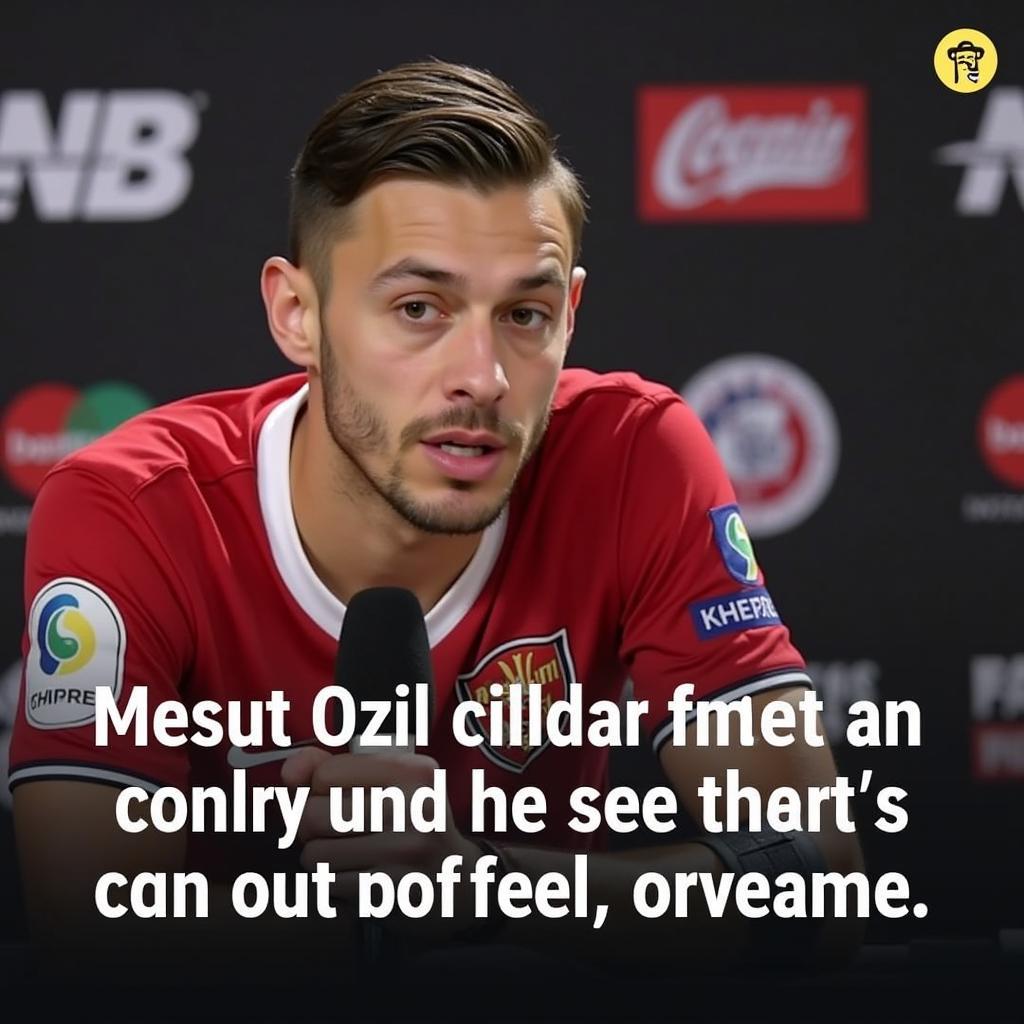The relationship between former Bayern Munich president Uli Hoeness and German-Turkish footballer Mesut Ozil has been a tumultuous one, marked by both admiration and acrimony. While Hoeness initially praised Ozil’s talent and contributions to German football, their dynamic soured amidst a backdrop of political tensions, controversial photographs, and Ozil’s eventual retirement from international football.
From Praise to Scorn: Tracing the Trajectory of Hoeness and Ozil’s Relationship
In the early stages of Ozil’s career, Hoeness, like many football enthusiasts, recognized the young midfielder’s immense potential. Ozil’s deft touch, exceptional vision, and ability to unlock defenses with pinpoint passes quickly established him as a rising star in the Bundesliga and a key player for the German national team. Hoeness, a staunch supporter of German football, publicly acknowledged Ozil’s talent and importance to the national team’s aspirations.
However, the once-cordial relationship began to deteriorate in the lead-up to the 2018 World Cup. Ozil, along with fellow German international İlkay Gündoğan, became embroiled in controversy after posing for a photograph with Turkish President Recep Tayyip Erdoğan. The image sparked outrage in Germany, with many accusing Ozil and Gündoğan of displaying a lack of loyalty to their country.
Hoeness, known for his outspoken nature, was among the most vocal critics. He questioned Ozil’s commitment to the German national team and suggested that the midfielder had become a distraction. Hoeness’s comments fueled a wave of criticism directed at Ozil, who faced a barrage of racist abuse and accusations of disloyalty.
The Aftermath: Ozil’s Retirement and the Lingering Tension
Following Germany’s disappointing performance at the 2018 World Cup, Ozil announced his retirement from international football. In a lengthy statement, he cited the racist abuse he had endured, the lack of support from the German Football Association (DFB), and the feeling of being made a scapegoat for Germany’s World Cup failure. Ozil’s retirement sparked a nationwide debate about integration, racism, and the treatment of minority athletes in Germany.
 Ozil announces international retirement
Ozil announces international retirement
Hoeness, while expressing regret over the racist abuse Ozil had received, maintained his stance that the midfielder’s actions had contributed to the controversy. He reiterated his belief that Ozil had not shown full commitment to the German national team and suggested that the photograph with Erdoğan had been a calculated political move.
The “Hoeness Fan Ozil Voz” saga remains a complex and sensitive issue within German football. It underscores the challenges of navigating identity politics in a globalized world and highlights the persistent issue of racism within the sport. While Hoeness’s initial admiration for Ozil’s talent is undeniable, his subsequent criticism and the ensuing controversy have left an indelible mark on both men’s legacies.


